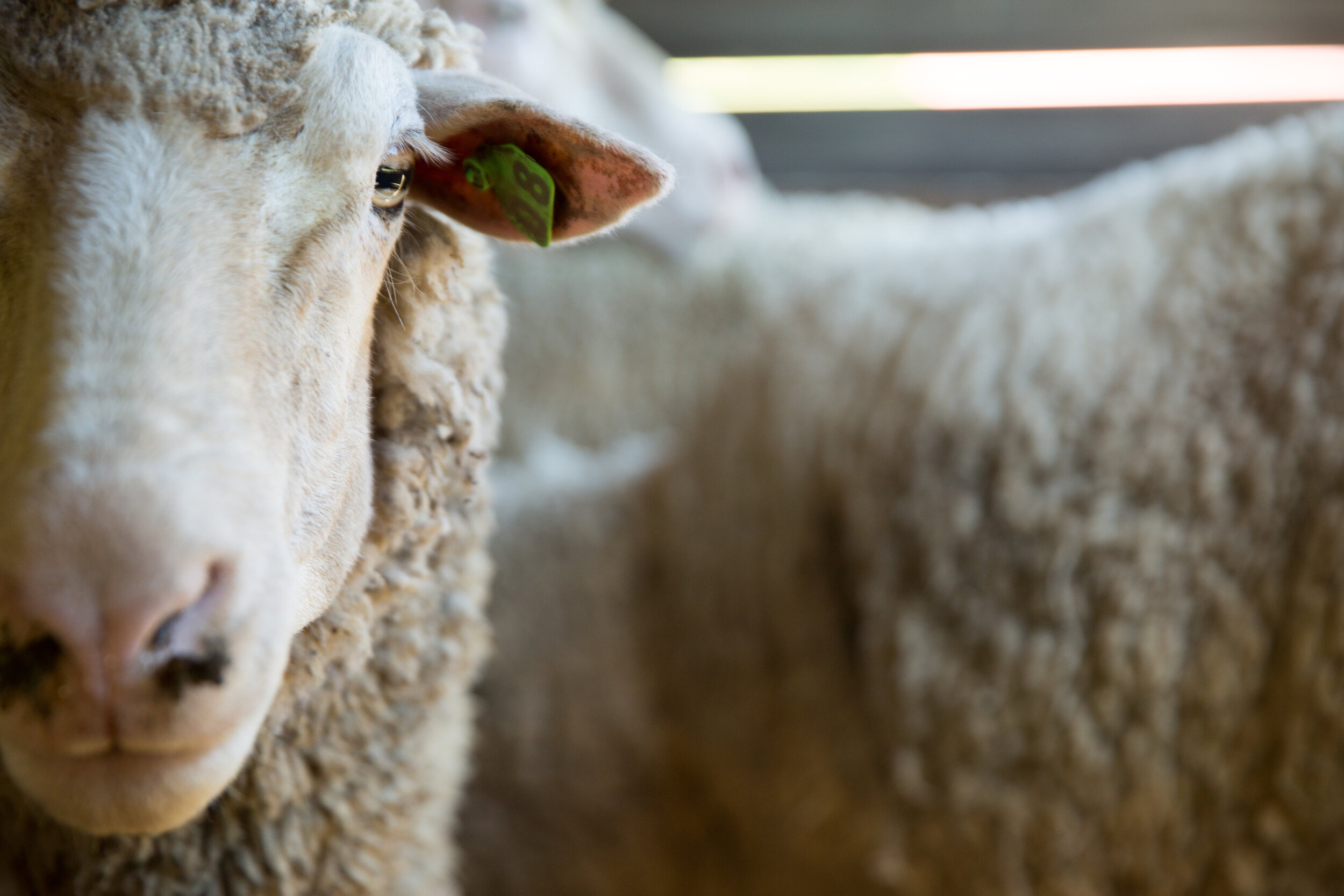
Climate Beneficial™ Wool
Soil is Earth’s second skin. Fibers are our second skin.
Aggregating wool from Climate Beneficial™ verified-ranches, the Fiber Pool is grown on California’s expansive rangelands and croplands.”
The health of the flock speaks to the richness of the fiber.
Like any agrarian process, the land’s health defines the quality of the crop.
The terroir of the textiles that are grown on Northern California landscapes are defined by the topography and forage of the Sierra Nevada foothills; the alluvial valleys that open onto sprawling grassland meadows; and the high elevation and cool climate of the Warner Mountains in the northern corner of the state.
The Fiber Pool offers brands the opportunity to work directly with the ranches that raise the fibers.
Let’s Talk About Wool
Wool comes from sheep & fiber-producing sheep DO NOT shed their wool.
Ranchers that have our Climate Beneficial™ verification shear their animals intentionally & humanely and position the wool within our Fiber Pool, as a means of generating income to convert more acreage to Climate Beneficial™ land.
Unshorn sheep begin to collect urine & feces in their wool; attracting pests, creating irritations and possible infections—again, endangering the health of the animal.
Once a year, the fiber-producing sheep must be shorn. What comes as a surprise to some, is that
shearing is a critical part of the ethical treatment of sheep.
If left unshorn, the wool grows to an unmanageable bulk resulting in the sheep’s inability to react to body temperature. Overheating & death are likely results.
Sheep with large amounts of wool lose their natural agility,
making them more susceptible to predator attacks.

Wool, it’s a perfect fiber.
Sustainable
100% Natural &
Biodegradable
Natural
Stretch &
Recovery
Long wearing
Reacts
to Body
Temperature
Wool is warmth & moisture-regulating,
which means wool will keep us
warm in the cooler months and
cooler in the warmer months.
Wool absorbs up to one third
of its own weight
in moisture and depending on external conditions,
is able to return it to the environment. Synthetic fibers,
even natural ones like cotton, cannot do that.
Wool takes the moisture
& wicks it away;
thus bacteria cannot settle as easily which means
your clothes will not develop unpleasant odors.
Wool comes in a range
of natural colors,
but also takes color beautifully.






